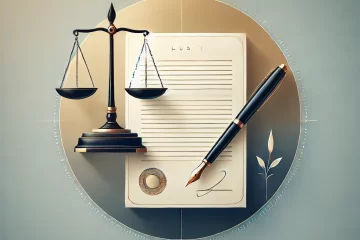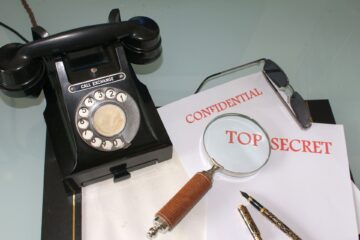![]()
Introduction:
“In all debates, let truth be thy aim, not victory, or any unjust interest”[1]
“Don’t raise your voice, improve your argument”[2]
In our daily lives we tend to argue a lot, but when it comes to debating that is professionally arguing we tend to lose the spontaneity and become conscious. Every law school aspirant has arguments running through their veins and for creating a Career in the legal profession it is very important to develop debating skills in a structured manner with a pragmatic approach.
Law is a social science and not a subject like mathematics that can lead us to single correct answer, a law student in the initial days of a law school truly understands the social science aspect of the law, which always has something for the motion as well as against the motion. Debating is somewhat similar to a coin which has two sides.
The Basic Skills for Debating in a law college: [3]
1. Connect:
The first and foremost skill in order to begin debating in a law school is to make yourself connect not only to the Judges who are Judging the debating session but also to your opponents as well to the House before which your place your debate either for the motion or against the motion. In many debates, the Judges often leave it upon the Audience in the House to decide the winner and in such cases, it’s the way you connect with your audience which plays the most crucial factor. Besides your communicative skills, eye contact towards the audience as well as your gesture towards the Judge and your opponents play an important aspect and are the basic elements which construe the way by which you connect with the others while debating.
2. Material/Content
In a debate, the debater must essentially and necessarily have proper content on which he/she speaks. Material/Content is actually what you would say in a debate, more specifically, content is the basic and the main points on which you would place your arguments before the House.
3. Outlining the Arguments
All arguments that shall be put forward by each person debating must necessary be to the point and shall also cover every statutory and moral aspect of a particular law in regard to which he/she is advancing his/her arguments.
4. Rebuttal
The arguments advanced by each speaker may be factually or morally or logically flawed. There may be misinterpretations or any such argument made by a speaker may also be irrelevant or unimportant or beyond the scope of a particular statute. In a debate pertaining to any legal aspect or even pertaining to any socio-economic aspect shall have different views from its’ different speakers and thereby a chance of rebuttal must be given to the speakers in order to point out the irrelevant or unimportant portions that are been advance by his/her rival speaker.
5. Flow of Words Should be Natural
The flow of words that are fallen from a speaker in the course of his/her argument is usually spontaneous and natural. Every speaker while advancing his/her arguments try to be natural and the flow of the words by which he/she tries to establish his/her point must be crystal clear, prudent, natural and must be coming out from the deepest core of his/her heart.
6. Code of Conduct
Ever Speaker in a debate must be in formal attire and shall wear a decent and presentable dress and shall also maintain a sweet and moral gesture towards the judge, audience as well as towards the opponent teammates. The Speakers should strictly adhere to the rules and regulations as laid down by the Organizers and shall not use any kind of unparliamentary or derogatory language in any manner whatsoever. Code of conduct of every speaker in the course of the debate plays an important and crucial role in achieving success.
7. Research Skills
While debating every law student must necessarily use his/her intellectual skills in a proper and prudent manner so as to achieve success by means of research methodology. A law student in a law school being a social science analyst must show its debating skills mostly based on the statutory provisions which are a part and parcel of the law of land.
8. Structural Argument
All law students being a social science researcher is expected to structure his/her argument in such a manner so that a scientific approach of such arguments may be ascertained. Proper reasoning must be put forwarded in course of the arguments and such reasoning must also be substantiated by proper illustrations in order to make the House understand the proper meaning and true scope of such arguments that is fallen from a speaker in course of a debate session.
9. Time Management
In all debates, the speakers are prescribed with a particular time limit within which he/she has to argue his points in a brief manner. It is always expected that a speaker shall confine himself/herself within such time frame since punctuality plays a crucial role while adjudicating the debate by the Judges.
10. Confidence
Every speaker in a debate must show his/her confidence with which he/she tries to establish his/her point of view so that he/she could easily win over the debate. Proper confidence of a speaker is enumerated through his/her voice while he/she is debating. Confidence helps in gaining a personality by which a speaker may achieve success in the field of debate.
11. Pace/ Speed
The pace or speed of throwing words in the course of debate is also one of the essential skills of debating. The pace with which a speaker starts his/her speech moulds with time and is actually dynamic in nature. The pace/speed is mostly depended upon the topic and the situation under which a speaker speaks up in a debate.
12. Tone/Modulation
Voice modulation is an extensive as well as intensive feature of good debating. The voice of a speaker shall be modulated as per the want of the topic. Moreover, voice modulation or change of voice is very much essential in order to properly express the different aspects of his/her arguments.
13. Volume
The Speaker must speak in a disciplined volume and shall not shout at the top of their voice. The volume shall be modulated and/or regulated as per the need of the hour. In a debate, the speaker shall try to maintain a certain or limited volume and may only increase such volume if they want to harper on a particular point or intends to emphasis on a particular statutory provision of law or while illustrating a judicial precedent.
14. Clarity
Every speaker shall have a particular ability to make complex things easier and presenting them in a very simpler form so that it becomes easier for the audience in the House to analyse and understand it.
15. Writing down key points
Every speaker in course of a debate must for his/her benefit write down key points while his/her opponent speaks in order to challenge the unimportant or irrelevant portions at the time of his/her turn of rebuttal.
16. Tips to help you win every debate round[4]
i. Confidence level boosts up your skill in a debate. Remember, the only person whose opinion matters at the end of the round is the judge’s, not yours! A common mistake everyone in public speaking makes is assuming that because you understand the argument that your audience does as well.
ii. A Speaker in a debate must speak comparatively. Every argument that you make, at the end of the round, will be compared against something the other team said. If you’re affirmative, for example, you should always be thinking in the mindset of “how does my plan compare to the status quo?” [i.e., doing nothing, what the negative frequently advocates]. For both sides, the most effective way to do this is through impact calculus.
iii. Always be positive. Composure, Poise, ethos, whatever you want to call it is an essential skill in public speaking and in life in general. This does not mean that you have to be arrogant
iv. The debate is a team activity. Even if you are stronger than your partner, you shouldn’t take over their speech or answer all of their questions in cross-examination. When that happens, your judge is more inclined to give both of the members lower speaker points, and one debater doesn’t learn the skills necessary to get better. Instead, make sure that you and your partner are going over arguments together so that you can teach each other the best arguments to make.
Format of a Debate in a Law College:
There are multiple formats that a debate usually follows, one of the basic structure of debate is enumerated hereunder;[5]
i. A topic is chosen for each debate, this is called a resolution or motion.
ii. The motion is usually a policy which changes the current state of affairs or a statement which is either true or false.
iii. There are two teams of usually 3 speakers:
a. The Affirmative Team, support the statement
b. The Negative Team, oppose the statement.
iv. A particular time is provided to each team to prepare.
v. Usually, a speaker in the Affirmative Team starts, followed by a Negative Team, then again another speaker from the Affirmative Team proceeds and then the second Affirmative Speaker speaks followed by the second Negative speaker.
vi. A chance of Rebuttal is given to the speaker of the Affirmative Team after the Second Negative Speaker concludes his/her argument.
vii. Finally the Judges decides the fate of the debate.
Conclusion
“It you’ve got the truth, you can demonstrate it. Talking doesn’t prove it”[6]
A debate is basically nothing but an argument in a formal form. Every law student for their future requires to argue since the argument is the basic feature of the legal profession. Improving the debating skills may have many starting points for law students. It helps every law student to analyze any statutory or non-statutory provision of law in a scientific manner and it also helps the law students in growing their confidence and personality which is very much required in the field of the legal profession. So, enhancing of debating skills among the beginners in a law college is very much important for their near future.
References:
[1] William Penn
[2] Desmond Tutu; 23rd November , 2004, Address at the Nelson Mandela Foundation in Houghton, Johannesburg, South Africa
[3] Litson Stephen(2016, December,16) http://legalrhythms.org/debating-tips-for-beginners/
[4] Bill & Will Smelko http://www.riudl.org/debate-tips-tricks/
[5] Gini Beqiri(2018, August,01) https://virtualspeech.com/blog/guide-to-debating
[6] Robert A. Heinlien ;Stranger in a Strange Land.



0 Comments